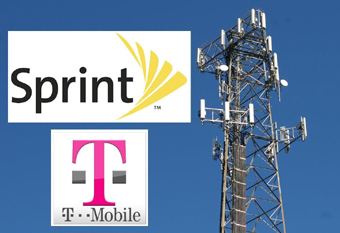
Maximum Wireless Merger
By R. Alan Clanton | Published February 15, 2014 |
Thursday Review editor
As if the proposed mega merger between cable television giants Comcast and Time Warner was not enough to give consumers, consumer groups and regulators headaches, North Americans may very soon face the possibility of only three major players in the wireless and cellular market.
Sprint Corporation, which is owned by the boisterous and colorful SoftBank billionaire Masayoshi Son, has an offer on the table to buy T-Mobile. Son is known for his aggressive, out-of-the-box management style. He once recently threatened to set himself on fire in front of a Japanese ministry out of frustration with regulatory snags.
Sprint’s short term goal is to enter into the big three of U.S. cellular carriers, but in order to do that he must consume the existing number three provider, T-Mobile. T-Mobile, which is owned principally by Deutsche Telekom AG, recently concluded a multi-billion dollar deal with the number one carrier Verizon for the purchase of vast swaths of bandwidth—a move that many tech analysts regarded as lucrative to both companies, and especially useful for T-Mobile to improve service in dozens of major U.S. markets.
Sprint’s long term eye is on the number one spot. Son and Sprint CEO Dan Hesse have made no secret that they think they have the plan to get there. Son, who is known for long range thinking—in the extreme—has famously developed a business plan which extends to the year 2320.
The Sprint-T-Mobile merger, if allowed by regulators in the United States and elsewhere, would poise the combined wireless titan to challenge number two AT&T and, in theory, Verizon. The logic is similar to the reasoning given days ago by Comcast CEO Brian Roberts: in the business of technology, bigger is often better, as smaller operations are naturally prone to inhibitions and limitations on innovation and cost-control; and the combined Sprint-T-Mobile partnership would deliver leverage and muscle to compete on a level field with Verizon and AT&T.
Consumer advocates are skeptical of such logic, and—as in the Comcast deal—suspect that the giant merger between Sprint and T-Mobile will result in thousands of layoffs, higher prices, and a reduction in customer service response. Further, some analysts fear that with only three major players in the U.S. cellular market, the price of service may increase organically through lack of genuine competition, especially at a time when the number of people using mobile devices increases dramatically each month.
But Son seems undaunted by the complaints and the skepticism, and he has openly courted U.S. political figures in his quest, including recent meetings with President Barack Obama in which Son offered a huge investment in technology education and schools, including the use of wireless bandwidth for educational purposes and millions of dollars in broadband architecture.
The question may ultimately rest with the regulators and the politicians.
Related Thursday Review articles:
T-Mobile: Fewer Dropped Calls; R. Alan Clanton; Thursday Review; January 6, 2014.
The Big Merger: Comcast and Time-Warner; R. Alan Clanton; Thursday Review; February 14, 2014.
